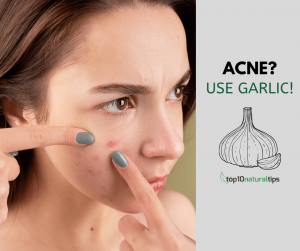Swimming is a fun activity during summer. Who does not like to play with the cool water to beat the effect of the scorching sun? But this fun comes with some challenges to your natural self. Your skin and mostly your hair tends to get damaged by the chemicals used in swimming pools. However, there are simple steps you can take to protect your hair and avoid the possible damages.

What does chlorine do to your hair?
Chlorine added in water pools is used for a variety of purposes. It is mostly used as an antibacterial agent to destroy bacteria and germs in the pool and keep the water safe for swimmers before it needs be replaced. Chlorine is composed of elements that make it unhealthy for hair. It makes the hair shaft dry, that in-turn, will make the hair strand coarse and fragile. Chlorine in the pool seizes the sebum from the hair, leading the hair strand to lose shine, undergo breakage, and also result in split ends.
How to get chlorine out of hair?
Here are some simple, easy to follow tricks that can help you protect your hair from damage by chlorine water:
1. Swim Outdoors
Swimming in an outdoor pool allow gases from the chlorinated water to escape into the air. This will leave less room for contamination of your hair and skin as well. These types of pools are also better for your eyes, nose, throat and lungs. If it’s needed to swim indoors, look for pools that are well-ventilated.
2. Shower before you swim
Wet hair tends to absorb less than dry hair. So taking a shower before you step into the pool decreases the possibility of your hair from absorbing the water molecules from the pool. Same case works for your skin as well. This is the scientific reason behind the necessity to take shower before you enter the pool.
3. Use oil and hair conditioner
Oiling or applying hair conditioner to hair prior to swimming is highly suggested by hair experts. This creates a protective layer between your hair follicles and the chlorinated water in the pool. It also nourishes the hair strands and make them smooth and shiny. However, be sure to use a swim cap if you’re using oil, else the oil is likely to attract sun damage.
4. Wear latex or swim caps
If you tuck your hair entirely into a swim cap and then jump into the swimming pool, you can safeguard your hair against any kind of damage from chemicals present in the pool. The cap will keep your hair dry. It is one smart way to maintain the health of your hair and avoid it from any possible harms.
5. Wash after you swim
A mild and sulfate-free shampoo after swim can help you get rid of all those chemicals hanging around the surface. Be mindful to give your hair a good soak in fresh water as a quick wash can result some chlorine molecules left in the hair follicles.
6. Comb your hair
Using a wide-toothed comb helps avoid frizzy hair and is an easy and effective way to keep your hair tangle-free. It relaxes the mess and also reduces the hair breakage. Avoid using a hair brush immediately after your swimming routine. A wide tooth comb detangles your hair without added stress and possible deterioration.
You can also follow these home remedies to safeguard your hair from possible chlorine threats.
7. Olive Oil Massage
Olive oil makes an effective hair coating that protects the hair from many type of damages – including effects of chlorine. The oil strengthens the sebum content produced by the scalp, therefore enhancing the hair follicles. Olive oil nourishes both the hair and the scalp and makes it naturally beautiful. Coconut oil can be a great alternative. Coconut oil helps to lock in moisture and strengthen the hair shaft.
8. Apple Cider Wash
Apple cider vinegar can be used as a clarifying rinse after every swim session. Using ACV will help get off all those chemicals attached to your hair strands and associated threats. The positive aspect of using this natural remedy for after-swim effects on hair is that it helps get rid of chlorine along with other damaging elements found in pools like copper, salt, and other impurities.
9. Treatment with Tomato puree
Tomatoes are one such nourishing agents that prevent the loss of moisture due to exposure to chlorinated water in the swimming pool. It also greatly reduces the harm that is caused by chlorine to your hair. You can cut some tomatoes and grind them to get a thick consistent puree. Then apply this paste on your clean hair and leave it on for 20 to 30 minutes before shampoo.
10. Baking Soda cure
Baking soda is another effective home cure for tackling frizzy hair problem due to chlorine water. It cuts out chlorine and other chemicals muddled in the hair follicles. It clears your scalp and makes your hair clean by removing any unnecessary build-up. Add water to some baking soda to make a consistent paste. Apply this paste to your hair and scalp and let it sit for 20 to 30 seconds. Then wash it off with plain water and regular shampoo.
Despite being an antibacterial agent, chlorine is a not a recommended element for your hair. It can cause hair discoloration, brittle and frizzy hair, loss of luster and volume along with dry and itchy scalp. So, if you really want to avoid the resulting consequences with even a single dip in chlorinated water, follow these easy and reliable tips and don’t forget to share your experience.














